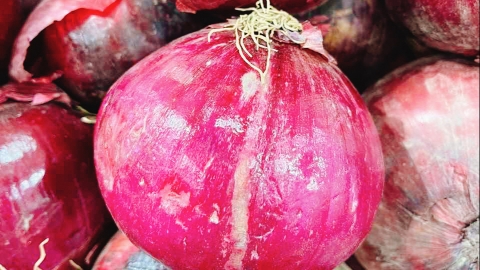Can broad beans and onions be eaten together?
Generally speaking, broad beans and onions can be consumed together, but moderation is advised. The detailed analysis is as follows:

Broad beans are rich in protein, dietary fiber, calcium, zinc, manganese, and other minerals, as well as phospholipids and choline. They offer benefits such as enhancing brain function, promoting bone development, and lowering cholesterol. Onions are rich in quercetin, sulfides, vitamin C, and dietary fiber, which provide antioxidant effects, cardiovascular protection, and improved digestion. When combined, the pungent aroma of onions enhances the sweetness of broad beans, while the soft, creamy texture of the beans adds depth to the onions. This combination is suitable for stir-frying, stewing, or making soups.
When consuming broad beans and onions together, it's important to use appropriate cooking methods to preserve their nutritional value and flavor. Broad beans must be thoroughly cooked to remove their beany odor and destroy saponins; it is recommended to blanch them or stir-fry for an extended period until fully cooked. Onions should not be overcooked to prevent excessive loss of their pungent compounds, which may affect flavor. Moreover, both broad beans and onions are low-calorie, high-fiber ingredients. They pair well with lean meats, tofu, or whole grains to enhance satiety and nutritional balance.
Broad beans contain vicine, which may cause hemolytic anemia in individuals lacking glucose-6-phosphate dehydrogenase, so they should avoid consumption. Those with sensitive digestive systems should be mindful of the pungency of onions and are advised to consume them cooked rather than raw. Patients with gout should limit their intake of broad beans due to their purine content, as excessive consumption may worsen symptoms. Additionally, both onions and broad beans are high in dietary fiber, and excessive intake may cause bloating or diarrhea. It is recommended to adjust intake according to individual digestive capacity.









